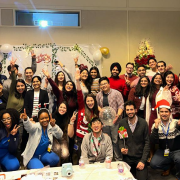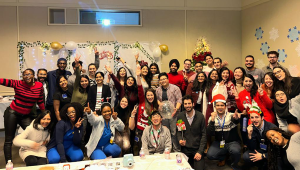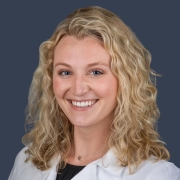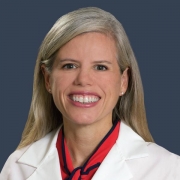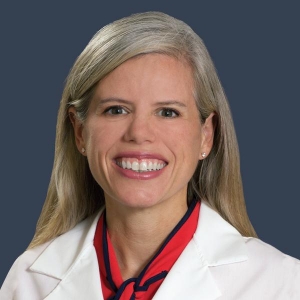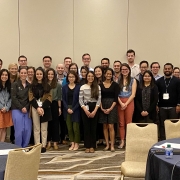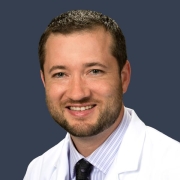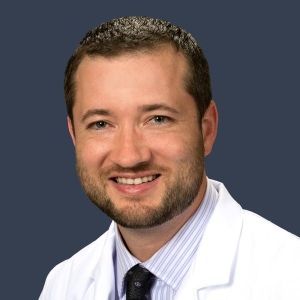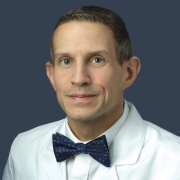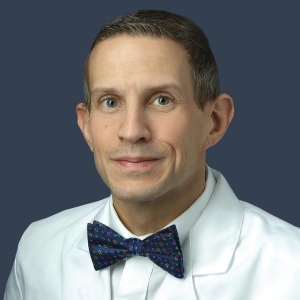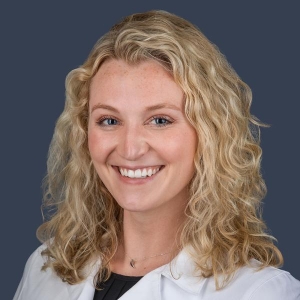
Cassie Libbing, DO (PGY-3, Internal Medicine)
Cassie Libbing, DO (PGY-3, Internal Medicine) is an advocate at heart. She was drawn to medicine because she wanted to be a good advocate for her patients and now at MedStar Health, she has stepped forward to be an advocate for her peers through her work as a Wellness Champion.
During medical school in her home state of Indiana, Dr. Libbing fell in love with the intellectual challenge of solving the varied diagnostic dilemmas that come with practicing Internal Medicine. She is also passionate about giving her patients tools to care for their health.
“We have medically complex patients, that’s our specialty, and it’s very important to me that my patients understand their diseases, ultimately empowering them with information so that they can make the best decisions for their health and take care of themselves,” she said.
This is especially important, Dr. Libbing said, because many of their patients do not have extensive experience with the healthcare system. The first physician a patient interacts with can have an immense impact on that patient’s trust in the healthcare system. “It’s easy to forget with the day-to-day work, but it’s an important role we carry,” Dr. Libbing said.
Dr. Libbing is also involved in fostering wellness among her colleagues. During her second year of residency at MedStar Georgetown University Hospital (MGUH), Dr. Libbing applied for, and received, a Wellness Champion Grant from the Center for Wellbeing to establish a dedicated Wellness Committee for the almost 90 Internal Medicine residents at MGUH.
“During that year, I was able to delve more into wellness research and learn more about what has been evolving with physician and resident wellness research in the past five years. A lot of it is moving past this idea of personal resilience and more towards seeking institutional interventions that can drive professional fulfillment and a sense of community,” she explained.
Now, with a second Wellness Champion grant, Dr. Libbing is building on her wellness work by utilizing a tool developed at Yale – the Residency Community Well-Being instrument – to track and evaluate resident wellness throughout the year. Anonymous surveys will help Dr. Libbing determine if wellness or professional fulfillment rises and lowers depending on the season, post-graduate year, specialty track, gender, or a number of other factors.
The tools that MedStar Health GME offers due to its status as a nationally-leading consortium – such as access to grants or statistical support from the MedStar Health Research Institute – is one contributing factor to Dr. Libbing’s success. That, plus the incredible community she has found at MedStar Health.
“There are so many great people who surround me and keep me going. Community is so important for wellness,” Dr. Libbing said. She advised her colleagues to find a mentor and never hesitate to ask for support.
Dr. Libbing also turns to her fiancé, an anesthesiology resident at MedStar Health, to stay grounded. But sometimes ice cream from Jeni’s Splendid or Van Leeuwen is just what the doctor ordered.
“I am an ice cream connoisseur,” she said. “I love ice cream. It’s the easiest way to make me smile.”




